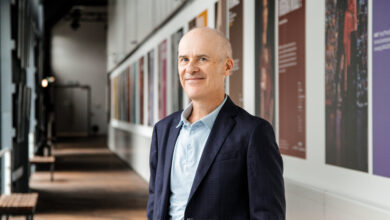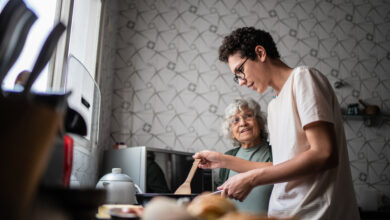So far, so good

Professionals who have worked well outside of the city describe what the experience has to offer.
Making the move from working in the city to taking up a post in a rural or remote area can bring about myriad benefits, both personal and professional, industry experts say.
“There are a lot of opportunities for professional enhancement of your skills and scope of practice,” says Christopher Cliffe, CEO of CRANAplus, an organisation that aims to educate, support and advocate for health professionals working in the remote sector. “You’re often limited to one quite narrow area of healthcare but in rural areas it’s very broad and therefore professionally it’s quite exciting.
“There are lots of opportunities with regards to professional development around postgraduate pathways and graduate certificates in rural and remote health and that will prepare you for the much broader day-to-day challenges of clinical practice.”
He says there are also added opportunities for promotion. “There is a relatively high turnover in rural and remote areas and there are some opportunities, therefore, for career progression in your area of specialty.”
However, Cliffe says moving to a rural area does take some preparation. “A lot of the challenges can be mitigated by good preparation and acknowledgement that you are going into a different area, both professionally and socially,” he says. These challenges include a feeling of isolation and a lack of the support that nurses may be used to having. Still, he says, applying some simple tools can help overcome these.
“There are mechanisms in place, like the Bush Support Services, but you need to know about them to help build resilience so that it becomes a positive experience as opposed to a challenging or frightening experience,” he says.
Cliffe says it’s important for nurses who have decided to make the move to a rural or remote area to research the community they are going to be working in and find out what their role is likely to include. They need to feel comfortable with the emergencies that can happen.
He says a lot of the care that GPs provide in cities often involves nurses in rural and remote areas.
“The more you move out of the city – to regional, to outer-regional, to rural, to a remote area – the number of doctors per head of population gets less and less but the nursing distribution is quite sound.”
Personal and social benefits for nurses and midwives in small country towns include the level of respect for health professionals, Cliffe says.
James Treloar, spokesman for Evocities, a government-backed campaign that aims to change perceptions of regional Australia, says moving to a rural area also brings about good work-life balance, as there is generally less travel time to work and less reliance on public transport.
An Evocities survey found that a lack of knowledge of what was within the regional or remote area was the most common reason people didn’t want to relocate. Treloar says the organisation’s biggest challenge has been changing the perception of what is in these areas. He says that in some rural towns you would expect to find facilities similar to those in some regional centres.
The Evocities job site lists many available positions, Treloar says, adding there is enormous demand for nurses.
In this issue of Nursing Review, we speak to three people who have made the trip inland to work. They discuss what the challenges are and what makes it worth it.
‘Truly a privilege’
Diane Menz was working in Wollongong Hospital when her son, a fellow registered nurse who had finished a contract with the Remote Area Health Corps (RAHC) suggested she try it as well.
Menz is now based at Ampilatwatja, a traditional Indigenous community a few hours from Alice Springs. People there still hunt and gather, and performs traditional ceremonies.
“It’s truly a privilege to be part of it, watch it, work with it and be accepted as part of it,” Menz says. “It’s a real privilege and it’s an honour to be here. It’s truly the best nursing experience I’ve ever had in my whole life.” She doesn’t think she will ever go back to working in a typical hospital setting.
Part of what she loves is the autonomy in her practice. “You diagnose, prescribe and treat because we don’t always have the luxury of a doctor in the community,” she says.
Menz says you rely heavily on clinical skills. “Out in the bush you don’t have the luxury of an X-ray or an ultrasound, [you rely on] your total clinical skills [to] diagnose a patient.” She also says aseptic techniques and health standards are maintained – even though a nurse may be sitting in the red dirt on the job.
She says one of the biggest differences between working in a remote setting versus a metropolitan area is that you do not have an entire team of people. “You just have to work with what you’ve got.”
The community also relies on nurses for things other than health, such as banking and organising funerals. “You’re not just a nurse, you’re just everything to the people,” Menz explains. “If something goes wrong they come to the clinic because they know they help you there.
“You’re just transferring your skills to a very different setting and that’s the rewarding sort of stuff,” she says. “You’re [transferring skills] to accommodate their culture.”
She says it’s about respecting the community’s culture and maintaining it.
‘More person-to-person connections’
Registered nurse Yanwen ‘Joshua’ Li moved from Adelaide to work in Orange, as there were more positions available.
“Working in a rural area enables me to see the needs of people where they might have lesser access to resources, in terms of medical treatment and support services,” Li says. He feels blessed to be making a difference in the lives of those living in rural areas.
“It enables me to build on my communication skills and I was encouraged by the nurses that I worked with to develop critical and additional skills in the required field,” he explains. It has also helped to build up his confidence.
Li lists a good work-life balance and an enjoyable surrounding environment after a stressful day amongst the benefits of working in a rural area.
Orange’s culturally diverse reputation was part of the reason Li wanted to work there. Upon arrival, he says, the close-knit community comforted and welcomed him.
A staff member from Orange City Council greeted Li and helped him settle in. Additionally, his fellow nurses were very welcoming. “They make you feel comfortable and they also rendered much support to me in terms of my work and living,” Li says. “There was not a single moment that I could not ask them for help if I encountered problems.”
He says the culture is different from the city. “[The people] are generally more relaxed and laid back, and more forgiving and understanding, so it tends to make work a little bit easier because we had more person-to-person connections,” he says.
Li was able to upgrade his skills through on-the-job training, as it was important to act quickly in emergencies whilst waiting for help to arrive. He says Orange was fairly well-resourced but lacking access to certain things required critical thinking surrounding what could be replaced or other ways to improve a situation.
‘Couldn’t put a price on it’
Whilst Emily Baldwin was studying a bachelor of nursing degree at the University of Technology, Sydney, she was encouraged to look into rural nursing due to the shortage of placement opportunities within Sydney.
“Rural nursing appealed to me because there were placements out there and also because of feedback that I got from people who had worked in a rural setting,” Baldwin says. She says others told her there was more autonomy and a broader range of things that you are able to do as a nurse.
Baldwin did four weeks placement at Orange Health Service and a further two weeks at Dubbo Base Hospital. She says she expected it to be a great experience and it was. “I learnt a lot about rural nursing and myself.”
Orange Health Service was a brand new hospital but Baldwin says the hospital in Dubbo was very much a typical rural facility. “That was more of a real image of what rural nursing is and the struggles they have to come up against in terms of the lack of technology.”
She says she was able to see how well respected nurses were in the rural community. “I was on the palliative care team,” Baldwin says. “It really was astounding to see just how important their role was and the differences that their decisions and input make to people’s lives.”
UTS provided financial assistance for the placement, but Baldwin says, “For what it was worth you couldn’t put a price on it.”
She is now doing her transition to professional practice in Sydney. She is considering eventually moving to a rural area to work.
In her placements she noticed many NPs and CNCs have quite a full work load in terms of the number of patients they take and their level of responsibility. “That sort of thing actually appealed to me because what they do is so important,” Baldwin says. “There’s a lot of work that needs to be done.”
Email: [email protected]





